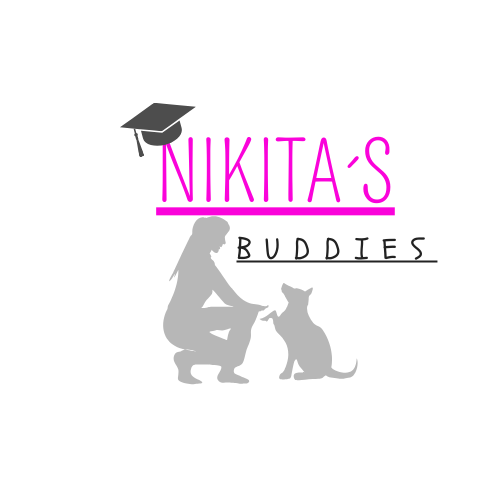-
Being alone is hard
-
I'm not sure if my puppy finds it difficult
Are you not sure if your puppy or dog finds it difficult to be alone? Your puppy just wants to be with you or maybe when you are in another room he sits in front of the door or barks in displeasure, but it does make you alert. Maybe he only barks when he is in the crate? You become insecure about it and do not know what to do? Briefly state your problem in the contact form so that we can look further. If you want tools and tips to teach your puppy this if I am sure that it is not related to separation anxiety I have another package teaching your puppy to be alone for a lower price of €47,-
-
When does a puppy/dog have difficulty being alone?
Most people recognize separation anxiety by the intense barking, howling or squeaking when you are not there, destroying or escaping is also something you can clearly see when you come back from the scratches on the door. However, there are behaviors that are not immediately linked to separation anxiety, but can definitely be related to it; peeing or pooping when you are not there, leaving food until you return (the filled kong, lick mat or bone), panting, pacing, hiding or just staring at the door waiting for you to come home. You may still be able to see a trace of some behaviors, but of many you may not (there are more). These dogs can therefore also be very anxious without you realizing it, because when you come home they greet you exuberantly. So when does a dog have separation anxiety? When the dog shows separation anxiety related behaviors and clearly finds it terrible and/or cannot handle being home alone.
-
When do you call for help?
Right! Not a second can be lost, because the sooner you are there and the less experience your dog has with the fear of being alone, the faster and better the training will go (with exceptions). So don't mess around with all the well-meaning advice from friends in the woods or on the internet. No, it is a lot more complex than most people think and there is no time to lose since your dog is really in panic.
-
If you have already involved someone
I can hear you thinking.. 'But is this really true? I have tried so much and even called in someone to help us several times. Why would it help now? What is different now?' As I mentioned before, the knowledge in the field of separation anxiety in the Netherlands is miles behind other countries such as the USA or the UK. Other dog professionals have probably sincerely tried to help you with your problem, because they were taught this way years ago (and dog professionals are still told this). Teaching them to stay in place, using a filled licking mat or kong, food puzzles, grabbing your keys 100 times a day or opening the door etc., but these techniques often have the opposite effect. In fact, it only makes them more alert/afraid, because these actions are already or will become the predictors for you leaving! And this is exactly what they absolutely do not want! Again, it is not a lack of will of the dog professionals who use these techniques, but a lack of correct information. It is therefore extremely important that you as a dog professional continue to educate yourself. I have specialized in separation anxiety precisely because there is a lack of good experts in this field and that is what is going to be different for you now. Correct knowledge based on research and experience. If you want to read more about this, I can send you some things and advise you to read.
-
How long does it take for my dog to get over separation anxiety?
-
I've been told my dog is dominant because he barks when I'm gone.
-
How do we work?
What are we going to do?
-
Why don't we use snacks or food?
-
Are you excited?!? Then I'm looking for you!
Are you enthusiastic after reading this page and would you like to collaborate?
-
What do you need?
Prices
Buddy 1
2 weeks
Starting session of approximately one hour
6 customized training plans
Feedback submitted videos of the training
1 video call of approximately 30 minutes
Whatsapp guidance
€160
Buddy 2
4 weeks
Starting session of approximately one hour
12 customized training plans
Feedback submitted videos of the training
2 video calls of approximately 30 minutes
Whatsapp guidance
€300,-
Introductory meeting
60 min
€45,-
Additional video call
30 min
€25,-
Additional video call
60 min
€45,-
The packages above can be extended.


